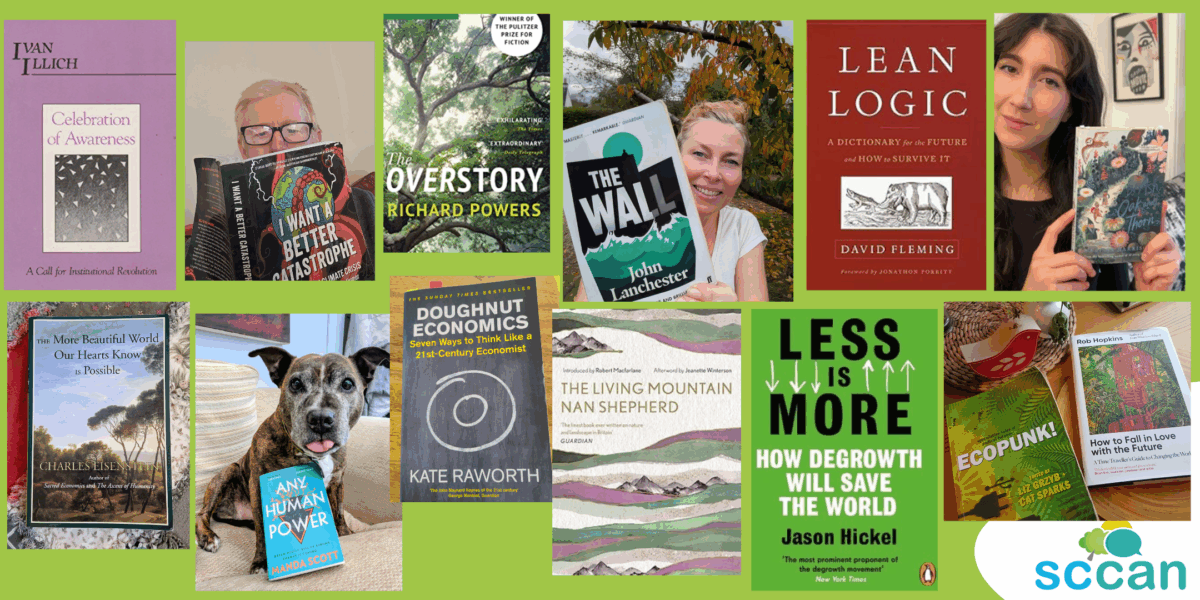To celebrate Scottish Book Week 2025, which runs between 17th and 23rd November, we turned to the best book critics we know: our own staff members! From environmental classics to unexpected favourites, the team has shared a brilliant mix of books that have influenced their thinking—whether about nature, climate, people, or place. Have a scroll through, discover something new, and maybe find your next read!
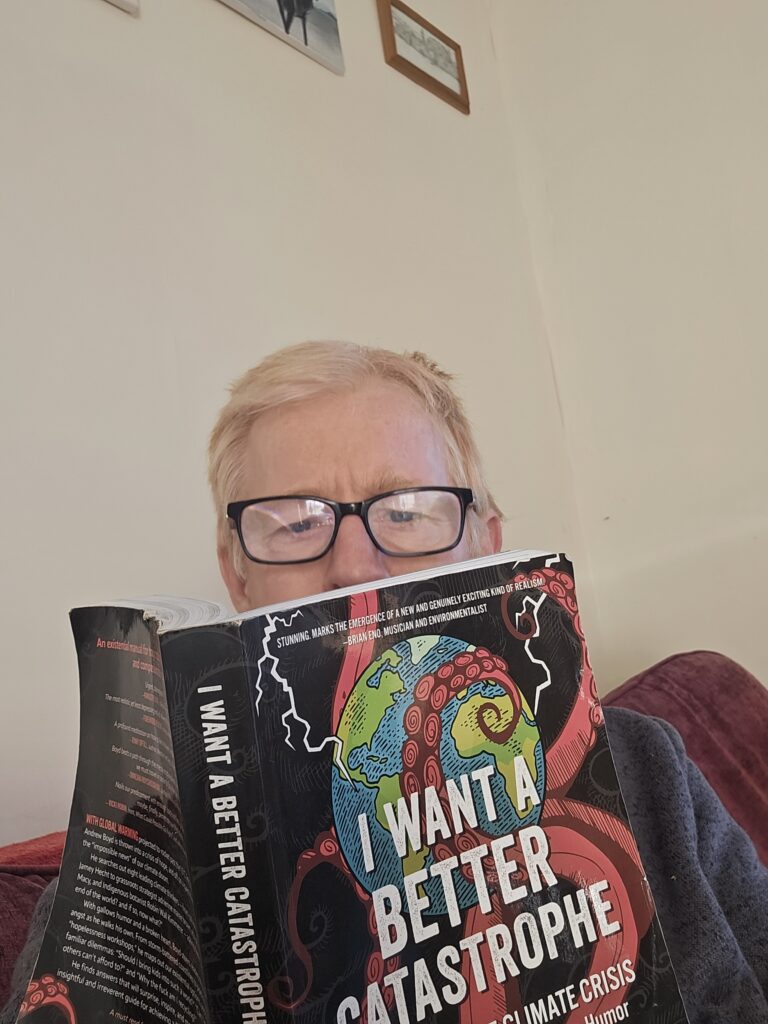
I WANT A BETTER CATASTROPHE by Andrew Boyd is a series of conversations with environmentalists, activists, hopers and doomers that confronts the current and coming crises and asks questions that I tend to ask myself. “Why do we do it?”, “Why do we continue to fight?”, “Why continue to have children?”. It provides a rollercoaster of emotions and takes you from the depths of despair to enlightening hope and back again several times. It’s filled with realism, inspiring action, honesty, a fair bit of anger and some fairly dark humour. I’d recommend it to anyone who feels like they’re butting against a brick wall, or who needs their fire stoked. – Craig Dunn, Operations Support Lead
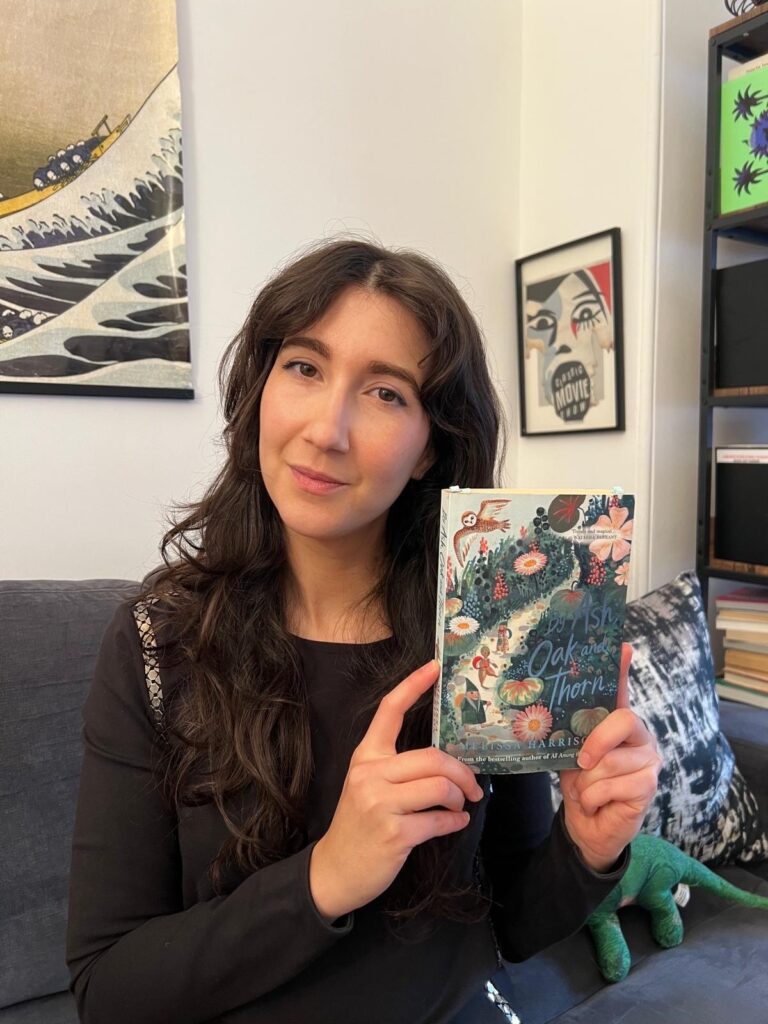
BY ASH, OAK AND THORNE by Melissa Harrison follows three tiny ancient Hidden Folk creatures – Moss, Burnet and Cumulus – who awaken in the spring to find their ash tree home destroyed. Cumulus begins to fade with parts of his body turning transparent and the trio sets off on a quest across the wild countryside and into the heart of human towns to find others like them and understand what’s happening to their world.
This story is a beautiful environmental fable for children (and adults!), a call to reconnect with nature, protect our fragile ecosystems and respect the unseen life around us. – Joanna Avie-Lorie, Story Weaver & Event Coordinator

ANY HUMAN POWER by Manda Scott is a mythological, political, visionary fiction for anyone who has ever asked ‘so just how do we get to a liveable, fair and beautiful world from where we are now?’ You won’t find heroes or aliens. You will find a collective, intergenerational approach that brings together people of many talents. It got my imagination fired up. – Kirsty Heron, Training | Resilience | Engagement
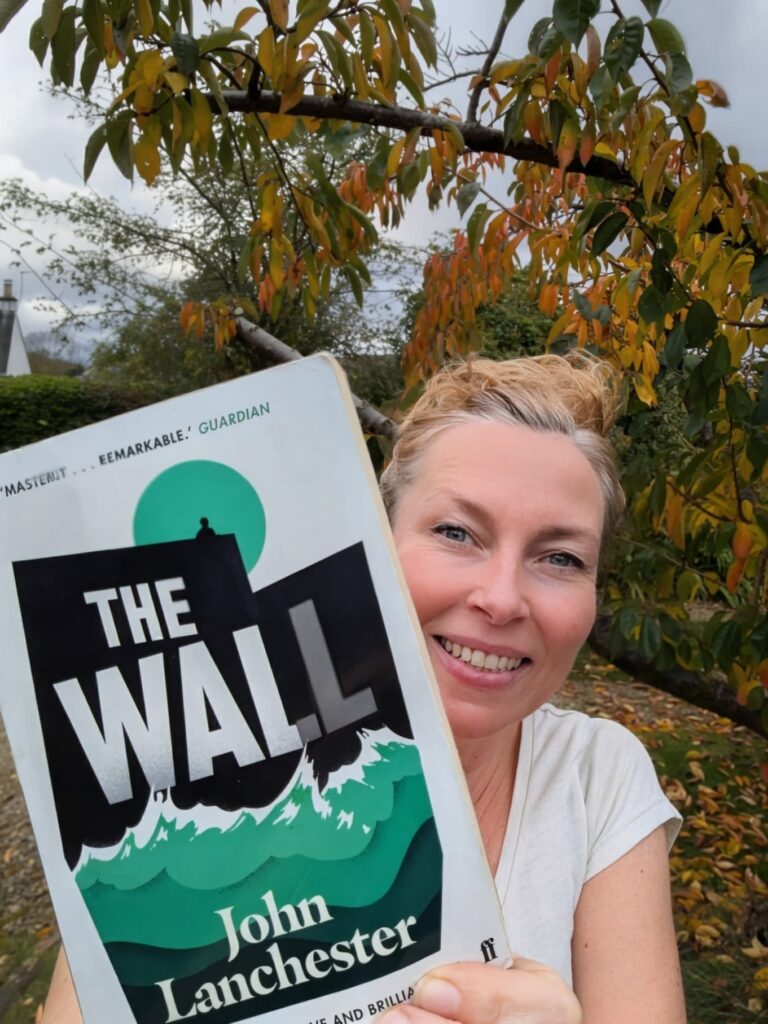
THE WALL by John Lanchester, a dark novel set in a future where sea levels have risen so much that the coastline of Britain is defended by a massive wall guarded by conscripts in order to keep out refugees in boats. A pondering of the degeneration of the environment and what its consequences on society could be (clearly more than a little bit influenced by Brexit and the politics of the time). I’ve made it sound really grim and it is, but in an excellently readable way. – Ruth McLaren, Communications Weaver
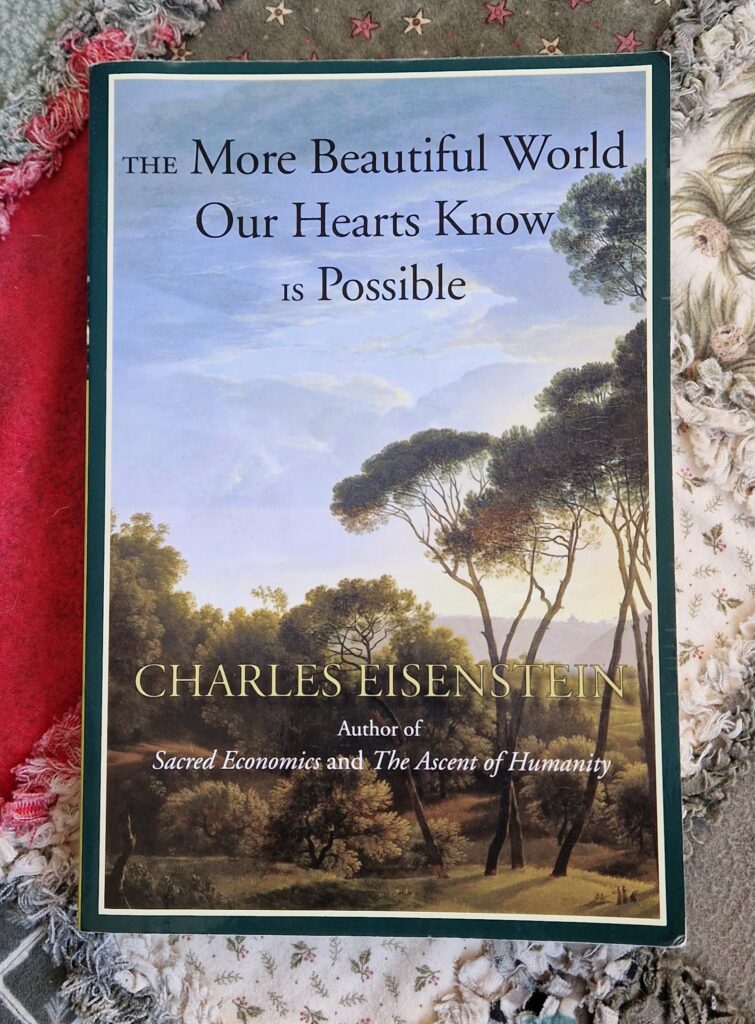
THE MORE BEAUTIFUL WORLD OUR HEARTS KNOW IS POSSIBLE by Charles Eisenstein is a space where I can find hope. It reminds me that a safer world, in all aspects, can be found in deeper authenticity and connection. The book restores my belief that interconnectedness, interbeing, is our true nature. As Thích Nhất Hạnh said: “We are here to awaken from our illusion of separateness.” And if we know that we are not separate from other beings, including the planet, we can then create the conditions for all to flourish. – Pam Candea, Community Engagement and Support Animator
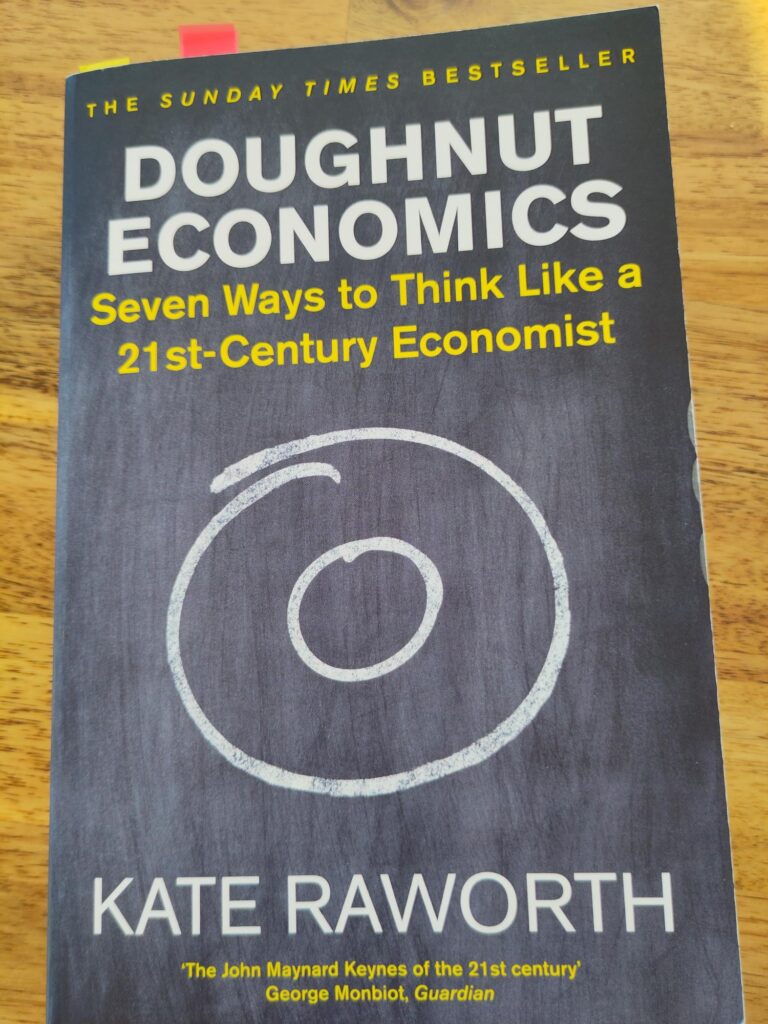
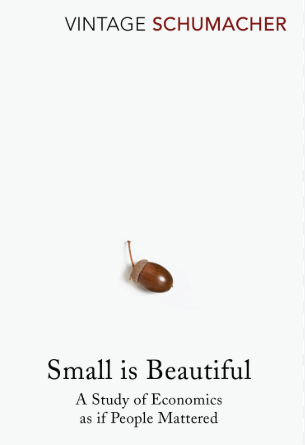
DOUGHNUT ECONOMICS (SEVEN WAYS TO THINK LIKE A 21ST CENTURY ECONOMIST) by Kate Raworth. Very readable and accessible, gave me the tools to argue for the better economy which I have always felt we need! My note to self on the fly-leaf reads: a highly entertaining communicator setting out a radical rethink for a truly sustainable economy. The infographics on pages 26 and 27 alone are transformative!
Also, SMALL IS BEAUTIFUL was a great source of inspiration for me a quarter of a century ago, and GAIAN DEMOCRACIES transformed my outlook some 20 years ago. – Fabio Villani, Engagement Weaver
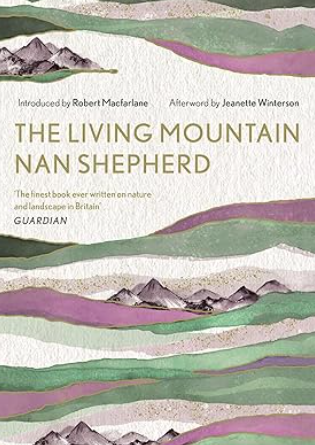
THE LIVING MOUNTAIN by Nan Shepherd, written in 1977, is a nature-writing piece detailing Nan’s travels throughout the Cairngorms, a place she was born, and remained close to throughout her life. Through her writing, which flows like poetry at times, she perfectly describes every hill, tree and blossom as if you are too, with her on the journey. Her respect and appreciation of her land flows out and at times is sobering as you realise how our environment has changed since her book was published. – Laura Forde, Finance & Admin Weaver
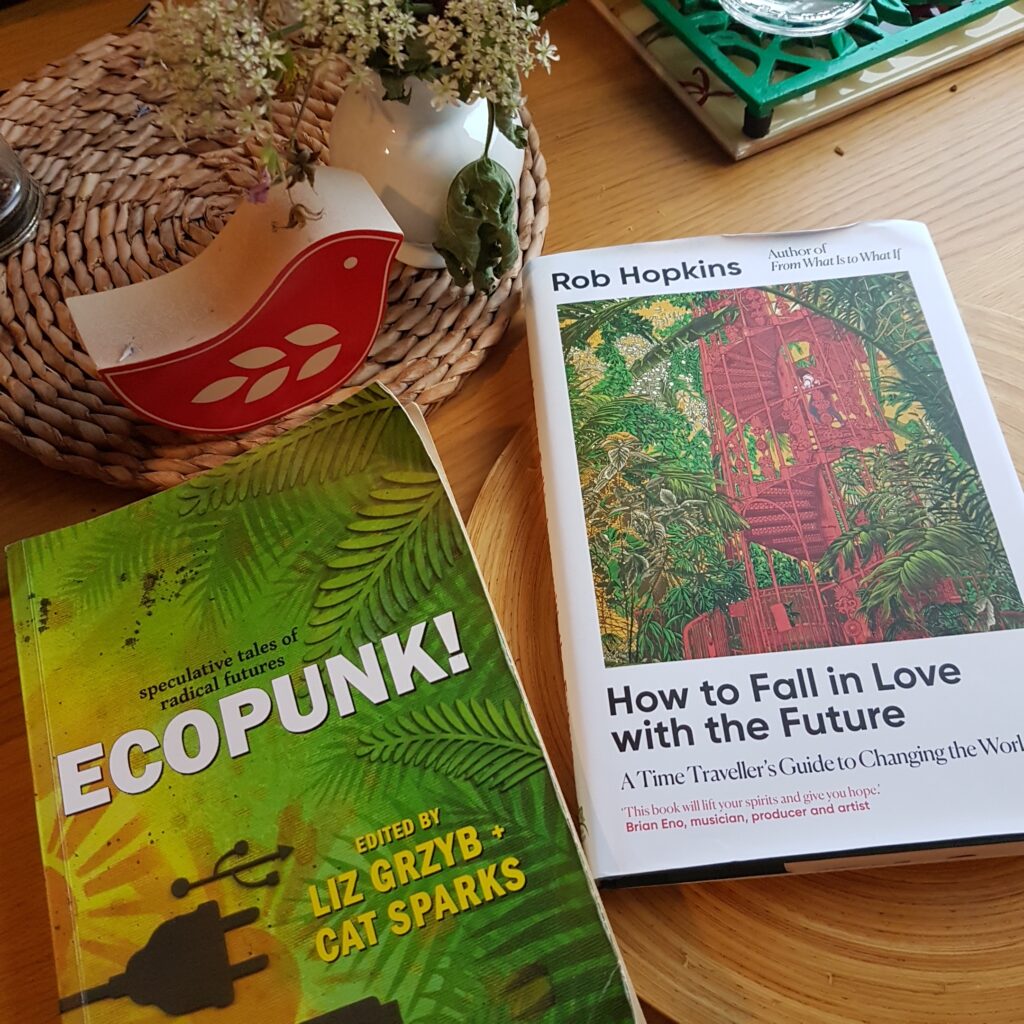
Firstly, the brand-new HOW TO FALL IN LOVE WITH THE FUTURE, A TIME TRAVELLER’S GUIDE TO CHANGING THE WORLD by Rob Hopkins, founder of the Transition movement. The book continues his work on how our imagination is a very underappreciated key to overcoming the climate crisis and creating a better future. As the man himself says:
“When you are in a situation where the survival of everything you love depends on your ability, and the ability of everyone around you, to reimagine everything, then imagination is a profoundly important thing.”The book gives practical advice on regular “time travel” practice to awaken and activate imagination in our own communities. It’s a practice that creates a genuine longing for the delicious memories of the future that will drive the change we need to get there. What appeals to my audio nerdiness is the fact that the book comes twinned with an audio creation, Field Recordings from the Future (https://www.fieldrecordingsfromthefuture.co.uk/home). It transports you there.
A fictional twin to Rob’s book is an offering of futures reimagined: ECOPUNK! SPECULATIVE TALES OF RADICAL FUTURES edited by Liz Grzyb and Cat Sparks. It’s a collection of solarpunk stories, a fictional gateway into a multitude of imperfect but livable futures created through a blend of Earth Care, People Care, and Fair Share principles with solar and other technologies. I’m rather fond of it, as it was my first foray into the solarpunk realm and is mostly set against a backdrop of Australia, my once-upon-a-time home. Weirdly uplifting. – Kaska Hempel, Story Weaver
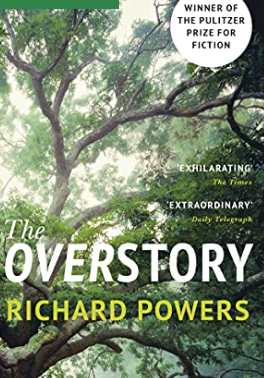
THE OVERSTORY, a novel by American author Richard Powers published in 2018. The book follows nine Americans whose unique life experiences with trees bring them together to address the destruction of forests.
I enjoyed reading a story where the tree felt like the main character. – Eilidh McKay, Assistant Accounts Weaver
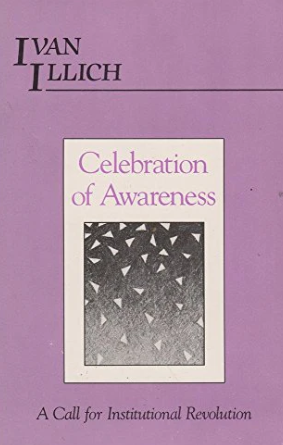
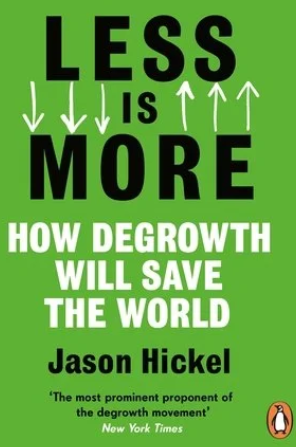
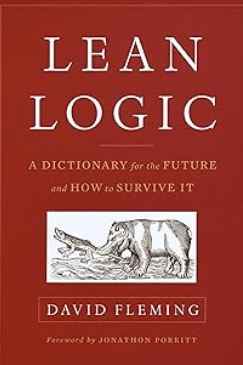
I would recommend Ivan Illich with books such as A CELEBRATION OF AWARENESS, which starts with the invitation ‘to celebrate our joint power to provide all human beings with the food, clothing and shelter they need to delight in living……Every one of us, and every group with which we live and work, must become the model of the era that we desire to create.’
More recent inspirations include LESS IS MORE: HOW DEGROWTH WILL SAVE THE WORLD by Jason Hickel, which asks fundamental questions about ‘the economy’: “Ultimately, what we call ‘the economy’ is our material relationship with each other and with the rest of the living world. We must ask ourselves: what do we want that relationship to be like? Do we want it to be about domination and extraction? Or do we want it to be about reciprocity and care?“
And David Fleming’s LEAN LOGIC: A DICTIONARY FOR THE FUTURE AND HOW TO SURVIVE IT is an extraordinary tour de force (now available online) which lays out a compelling vision of an alternative future rising from the challenges we face as the market economy collapses from its inherent flaws: “We know what we need to do, We need to build the sequel, to draw on inspiration which has lain dormant, like the seed beneath the snow…Localisation stands, at best, at the limits of practical possibility. But it has the decisive argument in its favour that there is no alternative.” – Philip Revell, SCCAN Board Member

